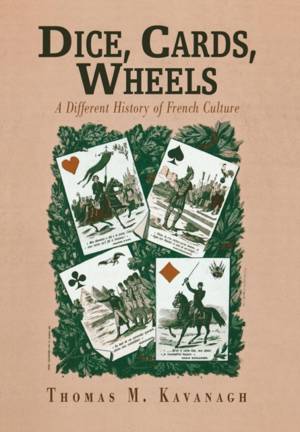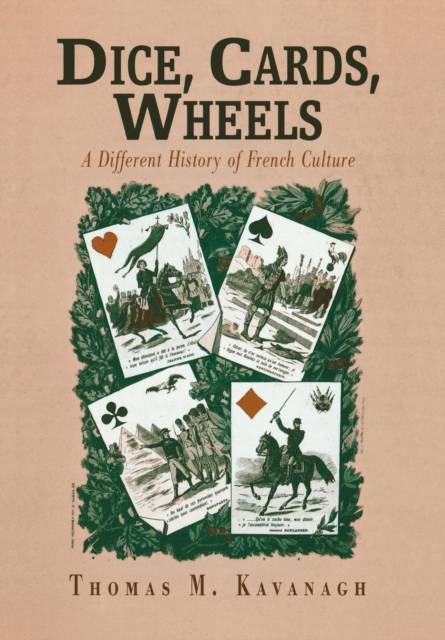
- Retrait gratuit dans votre magasin Club
- 7.000.000 titres dans notre catalogue
- Payer en toute sécurité
- Toujours un magasin près de chez vous
- Retrait gratuit dans votre magasin Club
- 7.000.0000 titres dans notre catalogue
- Payer en toute sécurité
- Toujours un magasin près de chez vous
Description
Dice, Cards, Wheels A Different History of French Culture Thomas M. Kavanagh "With his connoisseur's knowledge (and manifest love) of the rules, and ruses, of games and the culture that they shape, Kavanagh makes a convincing case that gambling ought to be considered not a moral failing or individual pathology but a conspicuous, and uncommonly revelatory, practice that sets the social scene that it dramatizes."--Journal of Modern History Gambling has been a practice central to many cultures throughout history. In Dice, Cards, Wheels, Thomas M. Kavanagh scrutinizes the changing face of the gambler in France over a period of eight centuries, using gambling and its representations in literature as a lens through which to observe French culture. Kavanagh argues that the way people gamble tells us something otherwise unrecognized about the values, conflicts, and cultures that define a period or class. To gamble is to enter a world traced out by the rules and protocols of the game the gambler plays. That world may be an alternative to the established order, but the shape and structure of the game reveal indirectly hidden tensions, fears, and prohibitions. Drawing on literature from the Middle Ages to the present, Kavanagh reconstructs the figure of the gambler and his evolving personae. He examines, among other examples, Bodel's dicing in a twelfth-century tavern for the conversion of the Muslim world; Pascal's post-Reformation redefinition of salvation as the gambler's prize; the aristocratic libertine's celebration of the bluff; and Balzac's, Barbey d'Aurevilly's, and Bourget's nineteenth-century revisions of the gambler. Dice, Cards, Wheels embraces the tremendous breadth of French history and emerges as a broad-ranging study of the different forms of gambling, from the dice games of the Middle Ages to the digital slot machines of the twenty-first century, and what those games tell us about French culture and history. Thomas M. Kavanagh is Professor of French at Yale University. Among his previous books is Esthetics of the Moment: Literature and Art in the French Enlightenment. Critical Authors & Issues 2005 264 pages 6 x 9 2 illus. ISBN 978-0-8122-3860-0 Cloth $59.95s £39.00 ISBN 978-0-8122-0245-8 Ebook $55s £36.00 World Rights Literature, Cultural Studies Short copy: Kavanagh argues that the history of gambling as a cultural practice provides new and important insights into how French culture has responded to the challenge of understanding what identity, responsibility, and freedom can mean in a world ruled largely by chance.
Spécifications
Parties prenantes
- Auteur(s) :
- Editeur:
Contenu
- Nombre de pages :
- 264
- Langue:
- Anglais
- Collection :
Caractéristiques
- EAN:
- 9780812238600
- Date de parution :
- 07-03-05
- Format:
- Livre relié
- Format numérique:
- Genaaid
- Dimensions :
- 157 mm x 231 mm
- Poids :
- 544 g

Les avis
Nous publions uniquement les avis qui respectent les conditions requises. Consultez nos conditions pour les avis.






